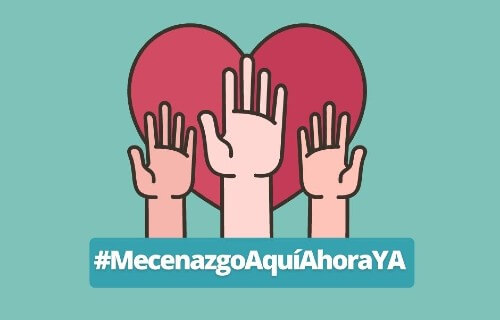Patronage is a way to promote social cohesion, encouraging increased private participation in activities of general interest and, consequently, fostering, strengthening, and further articulating civil society.
On Tuesday, December 19, the Council of Ministers approved a Royal Decree-Law amending the patronage law that has been in place for 21 years. The approval of the reform of this law was frustrated in the previous legislature just two days before receiving the Senate’s approval. After being endorsed in Congress with the favorable votes of all political parties (31 votes) and the abstention of Vox (5 abstentions), the reform was in progress in the Upper House when both chambers were dissolved due to the early elections on July 23. Now, the Government has approved it on Tuesday as a Royal Decree-Law, and it will come into effect on January 1, 2024. Subsequently, Parliament will have to validate it.
The current legal framework in Spain for patronage is Law 49/2002 of December 23, which, in turn, updated Law 30/1994 on Foundations and Fiscal Incentives for Private Participation in Activities of General Interest.
The innovations introduced by the reform of the patronage law in Law 49/2002 are as follows:
Crowdfunding is encouraged, and deduction percentages are increased: for individuals, the base on which 80% of the income tax deduction can be made is raised from €150 to €250, and the remaining amount will have a 40% deduction (instead of the current 35%). For legal entities, deductions in corporate income tax also increase from 35% to 40%. In both cases, to reward sustained patronage, the deduction increases to 45% for individuals and 50% for legal entities (both now at 40%) if, in the previous two years, the donation to the same entity has been made for at least the same amount.
The concept of fiscally deductible donation includes the transfer of use of all types of movable and immovable property within the broader concept of the donation of rights.
The concept of collaboration agreement is expanded to expressly include contributions in kind, including the free provision of services. The collaborator may also publicize this collaboration.
The so-called recognition or reward patronage is included, allowing the donor to receive symbolic returns in the form of goods or services, provided they do not represent more than 15% of the donation’s value with a maximum limit of €25,000.
The types of exempt economic activities are expanded when carried out by non-profit entities in the following areas: development and innovation, provision of socio-labor insertion services for people at risk of social exclusion, and teaching and vocational training linked to high-ability students.
The automatic application of local tax exemptions for the assets of non-profit entities is reinforced.
This regulatory reform is a significant step in recognizing the indispensable work that non-profit entities (NPOs) carry out in Spain to fulfill the goals of general interest



Comments are closed.